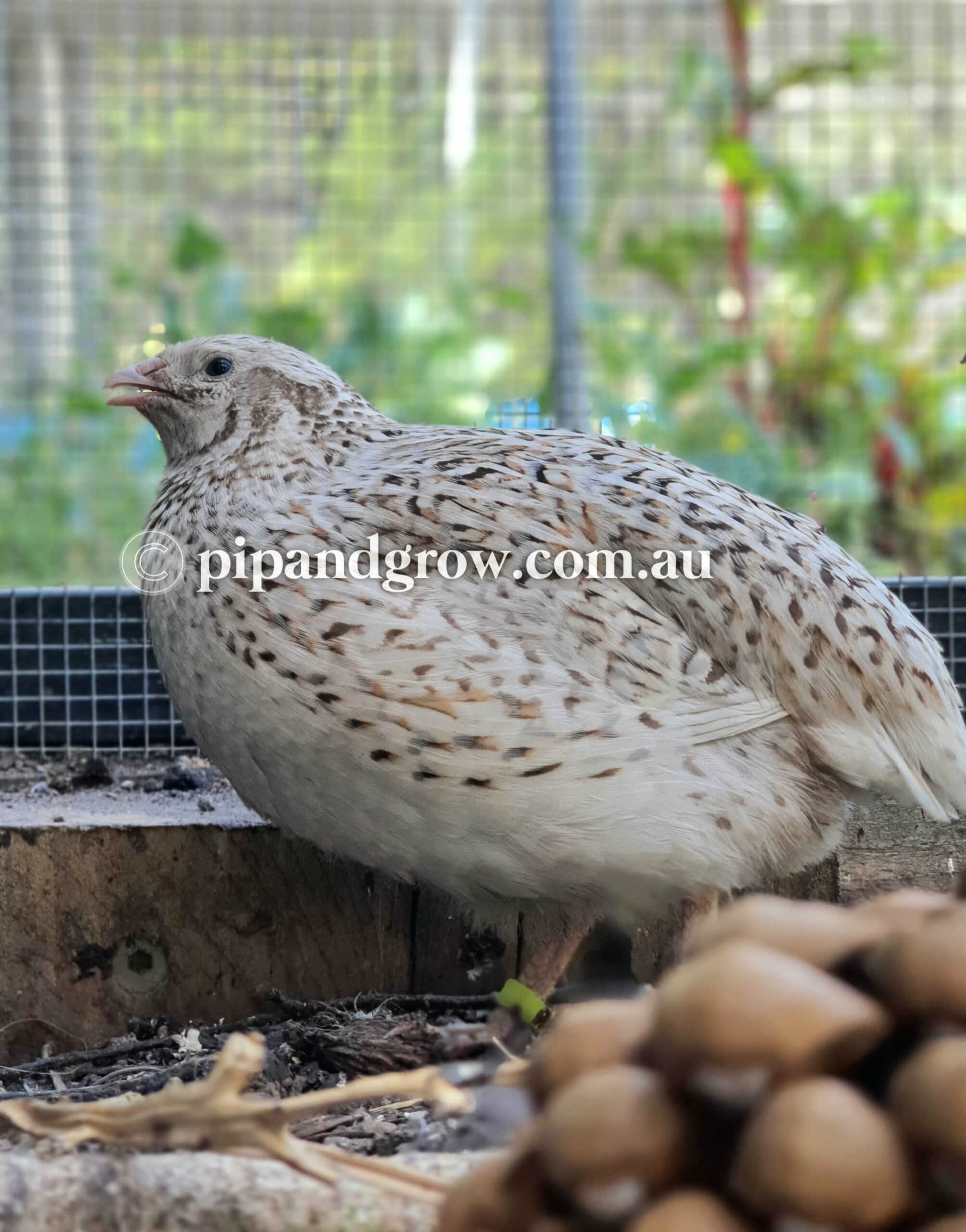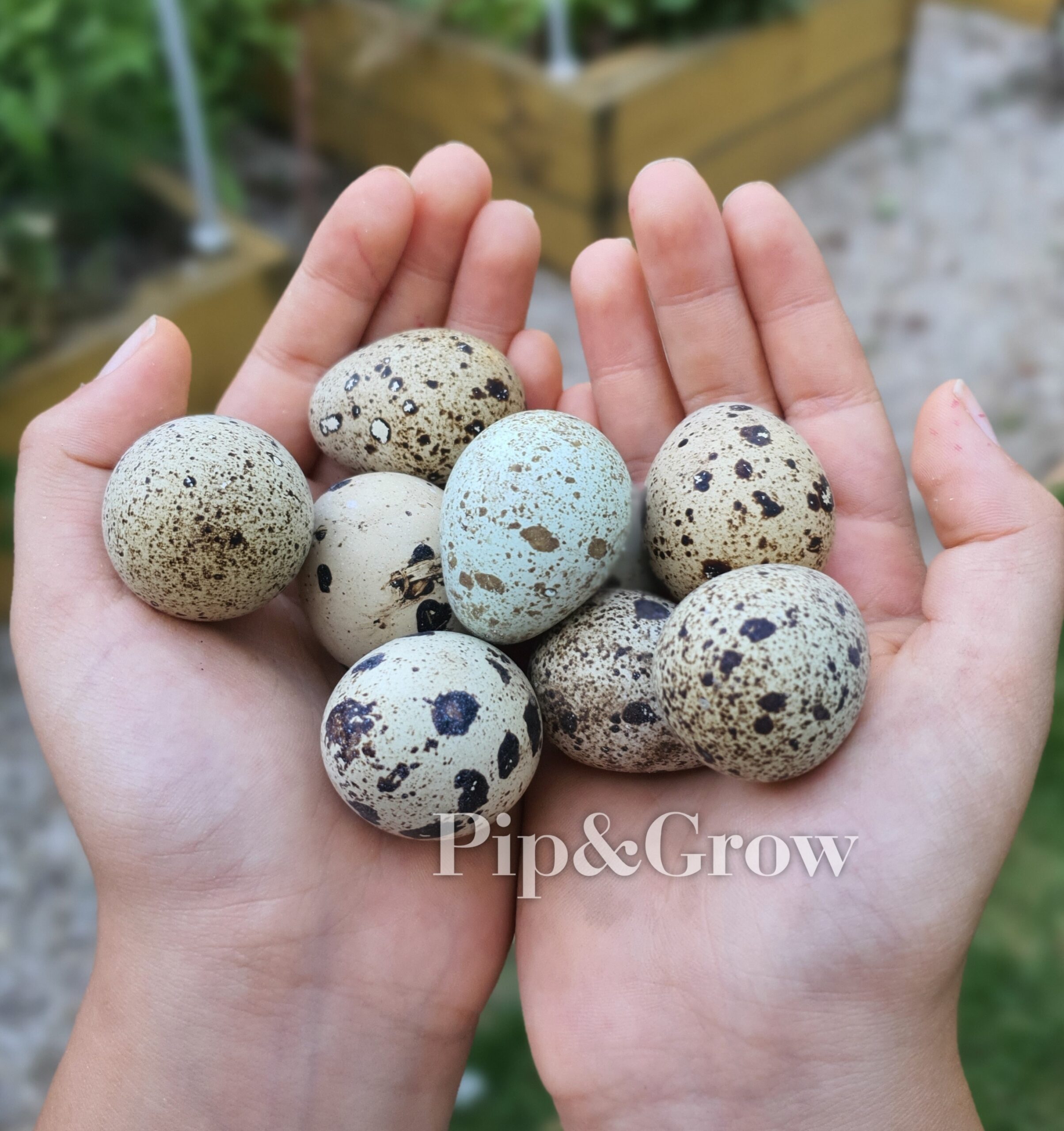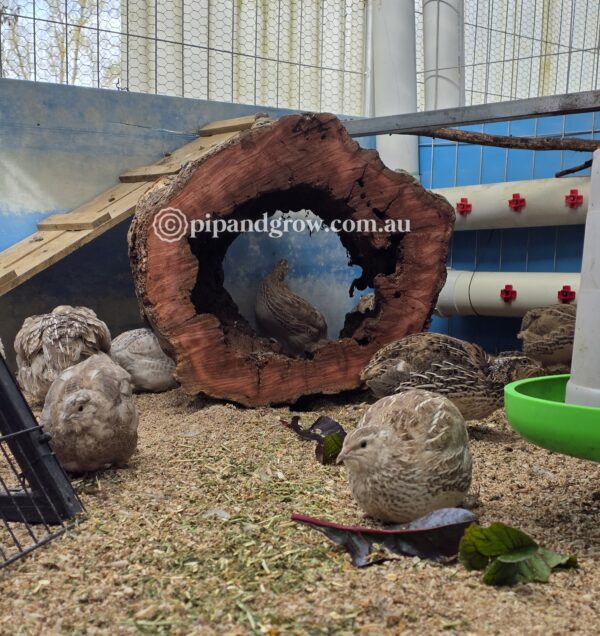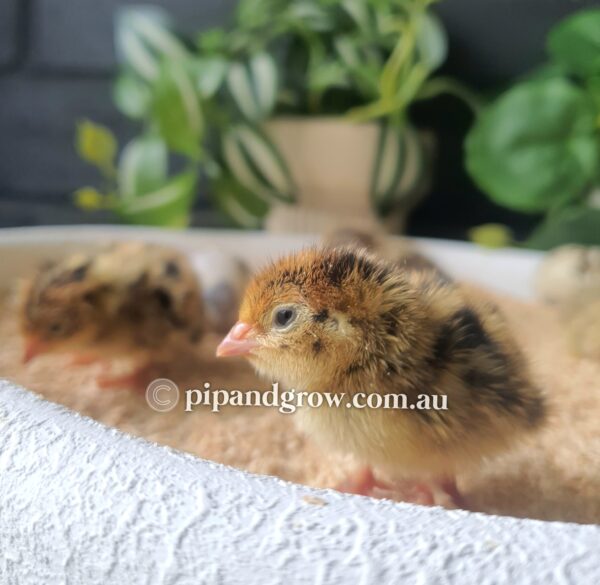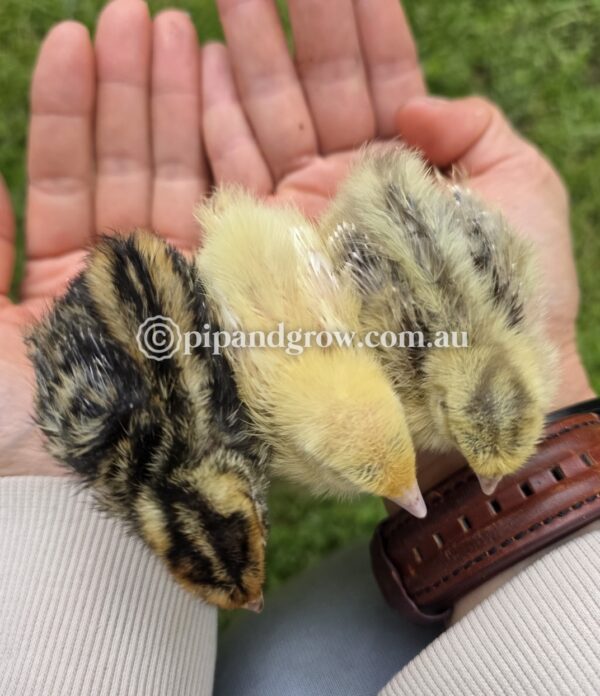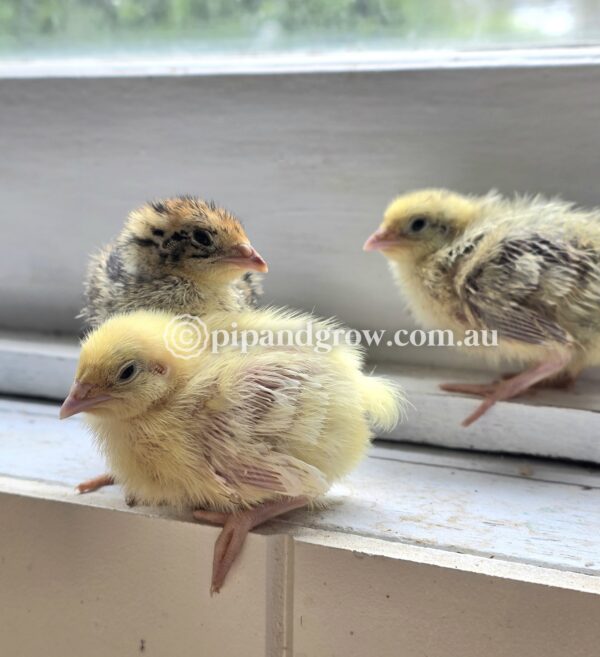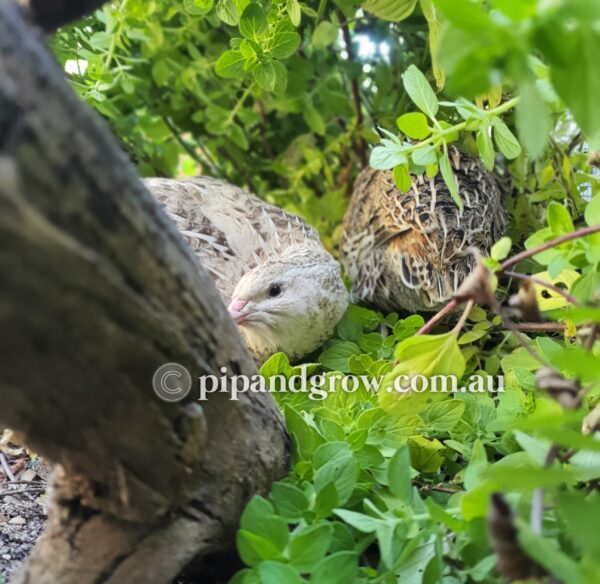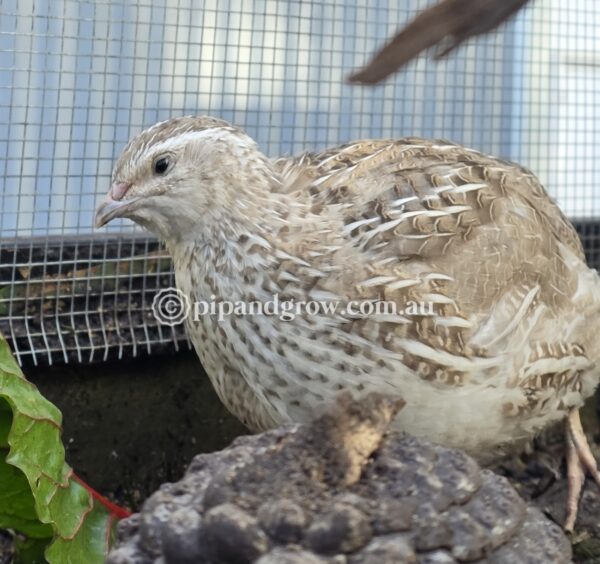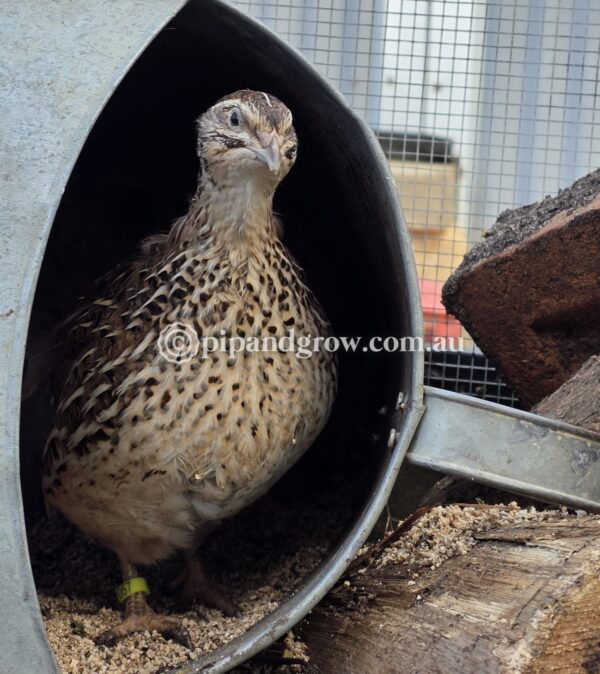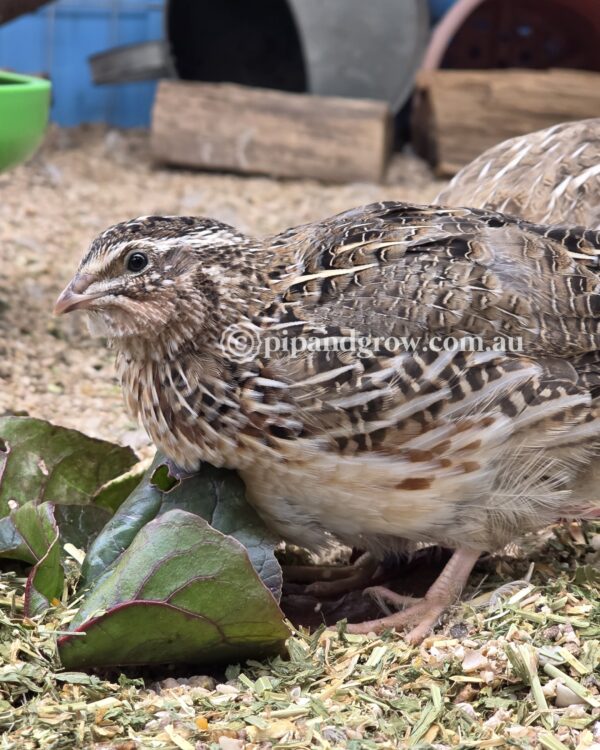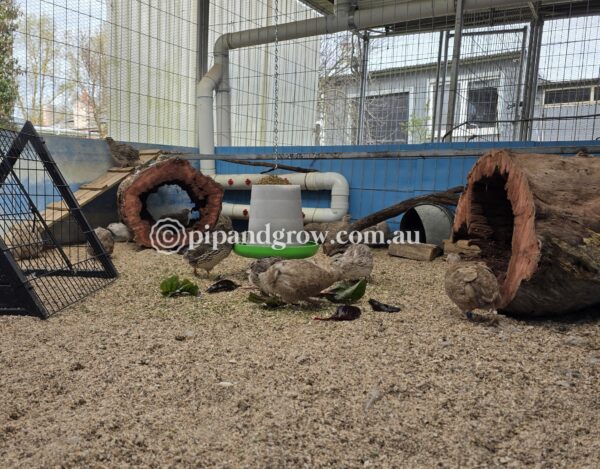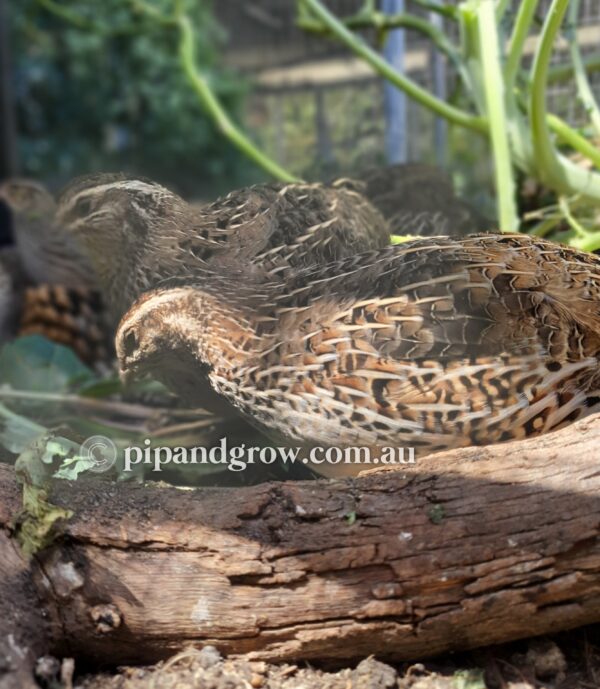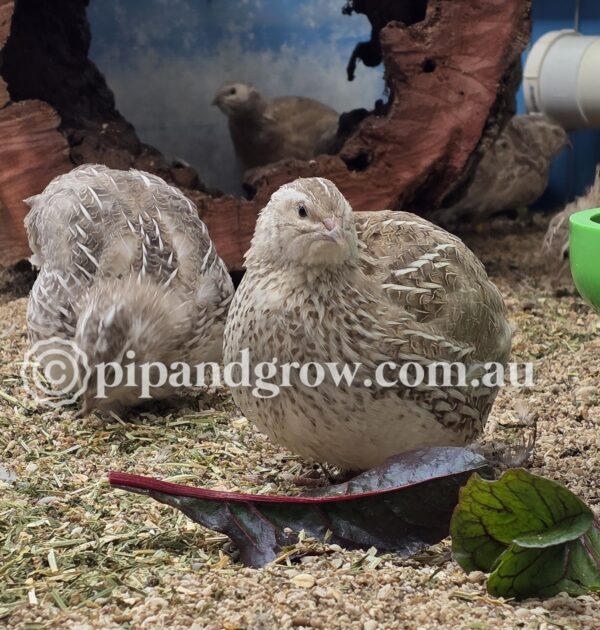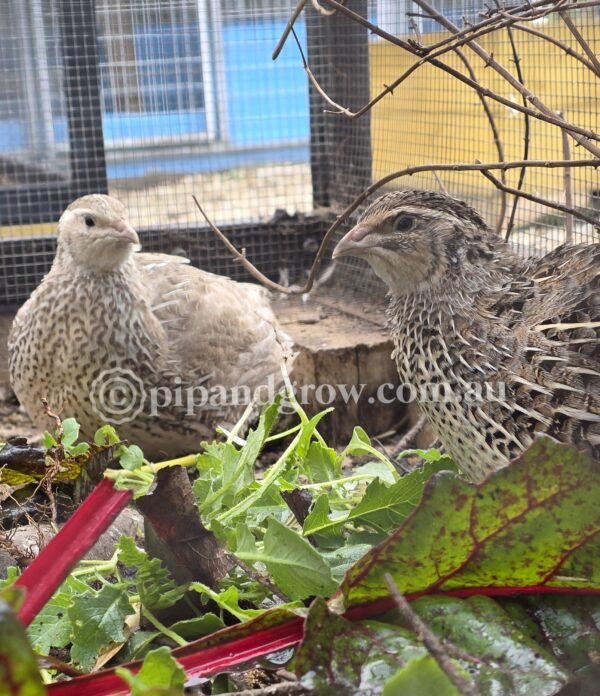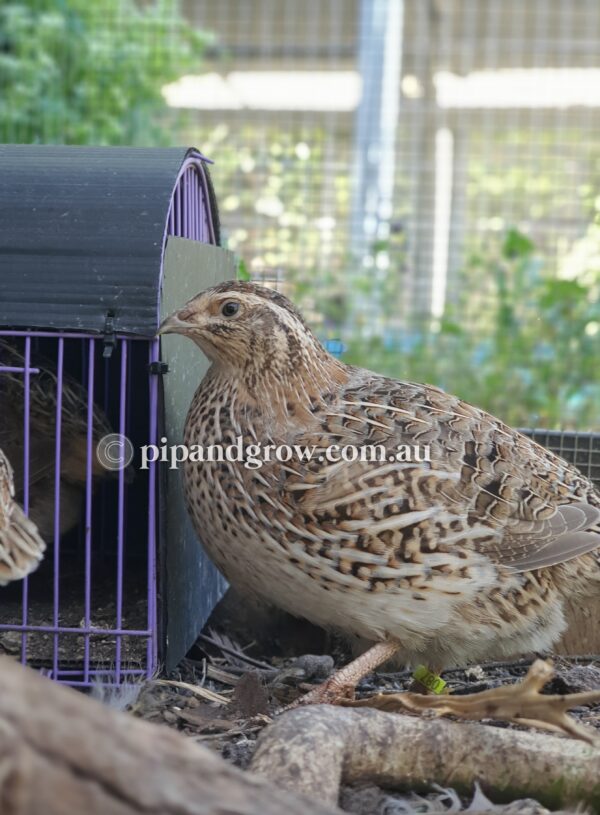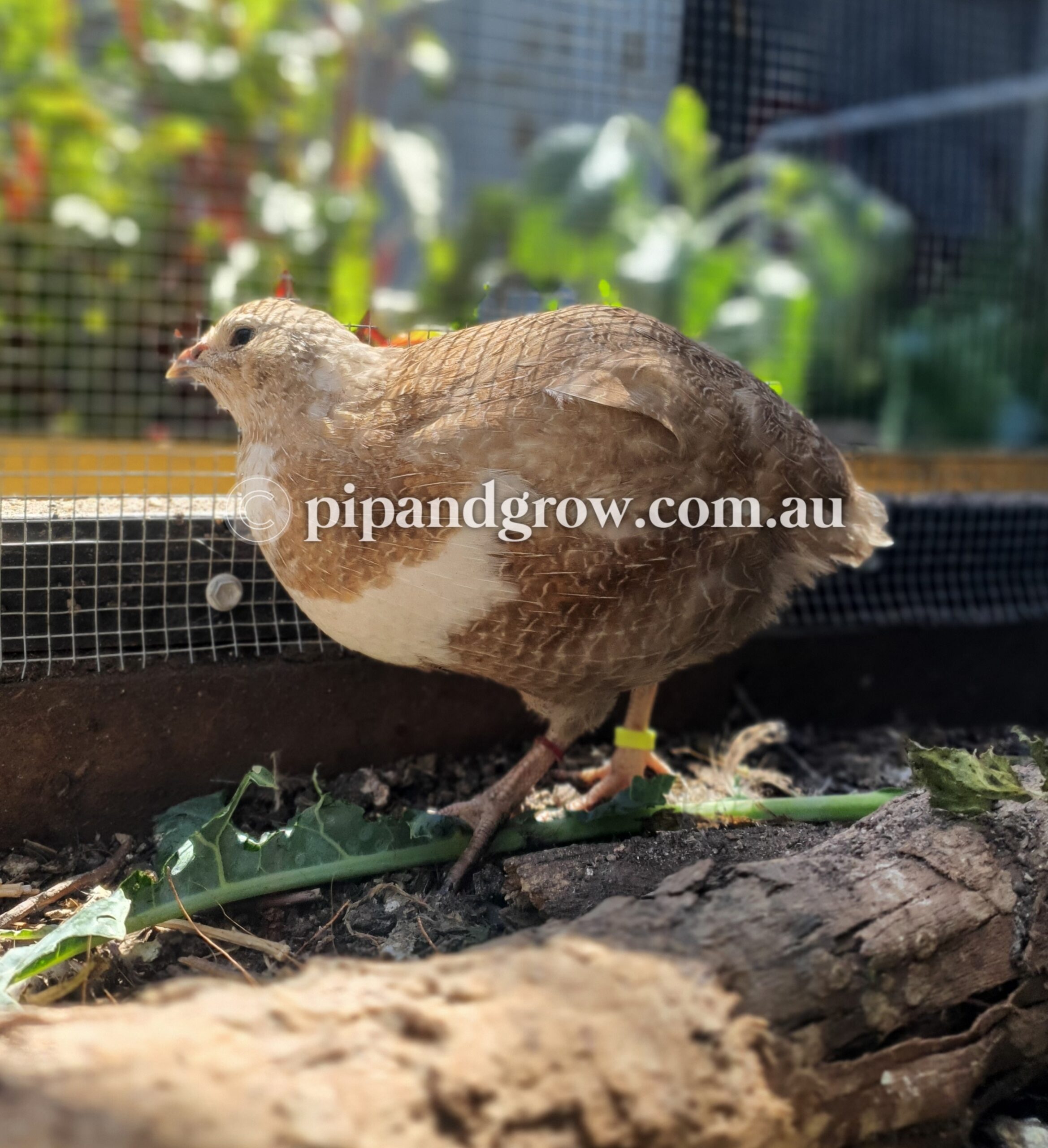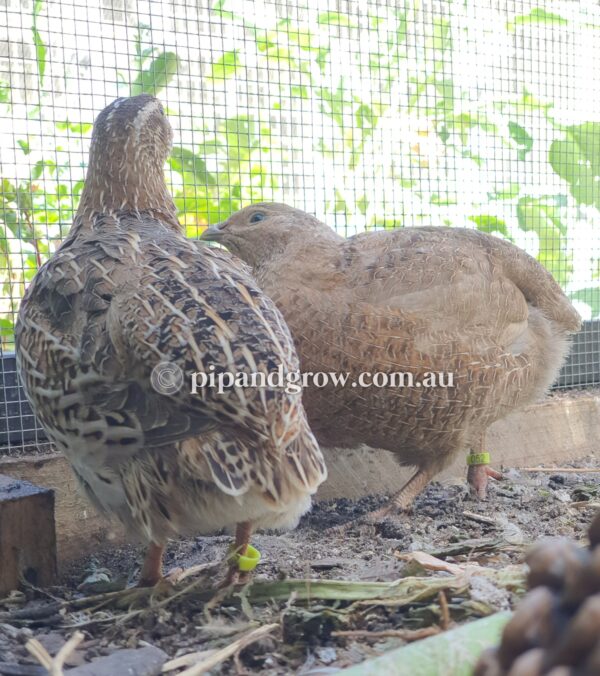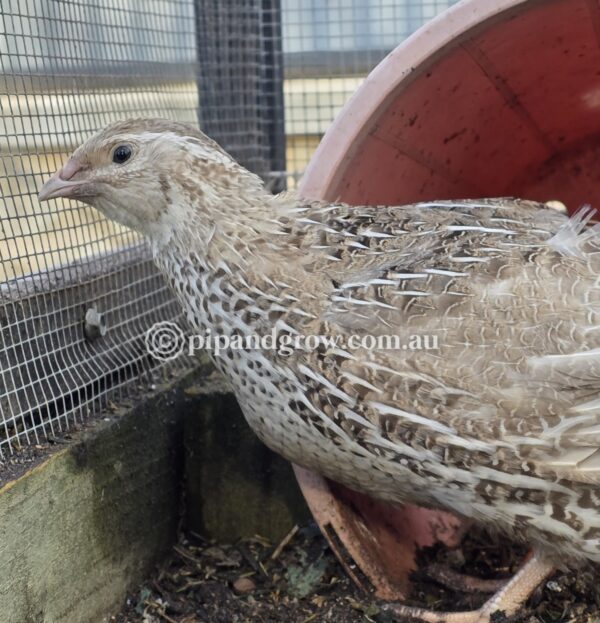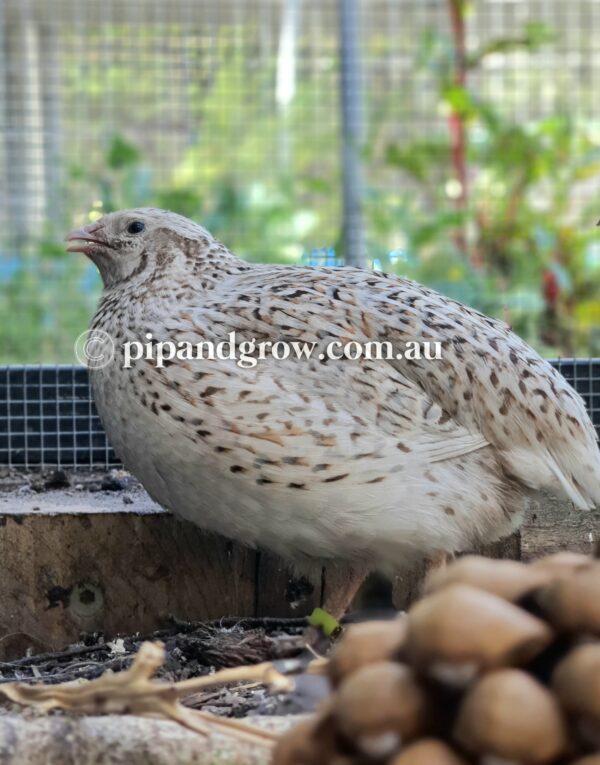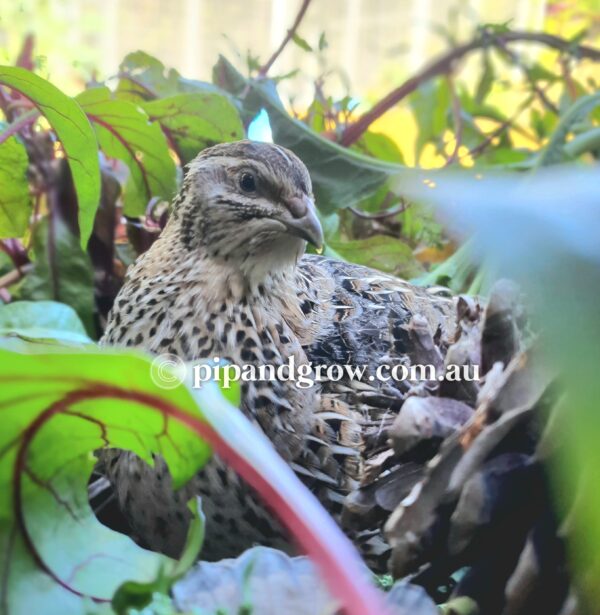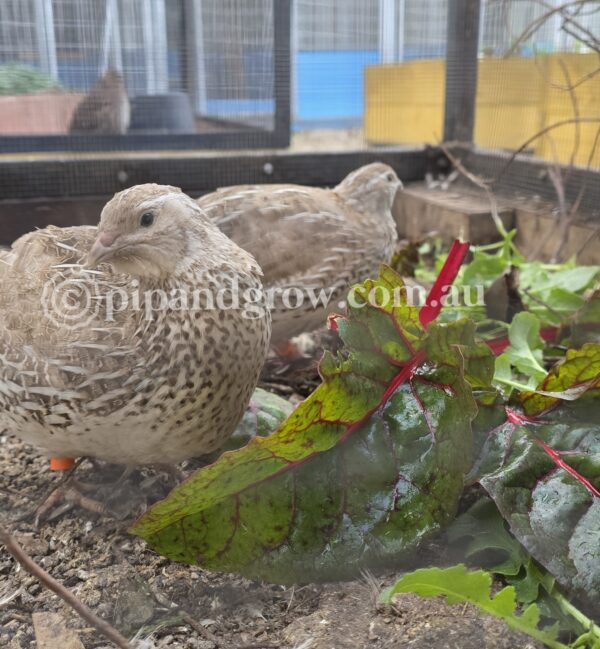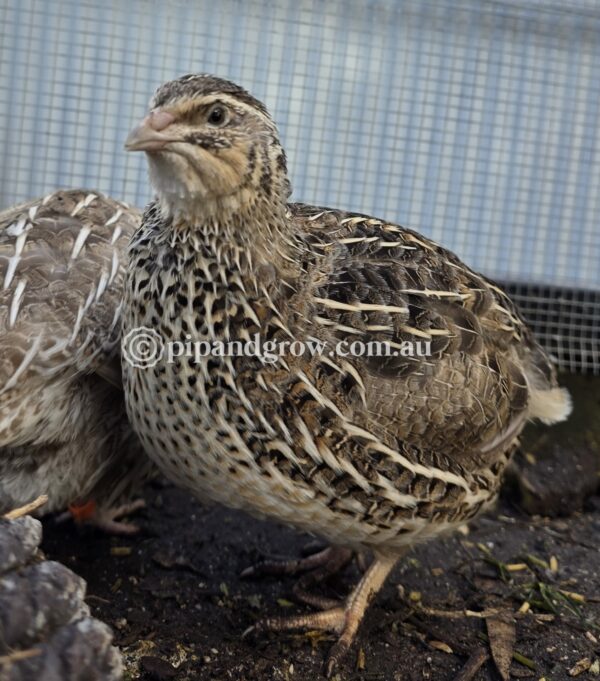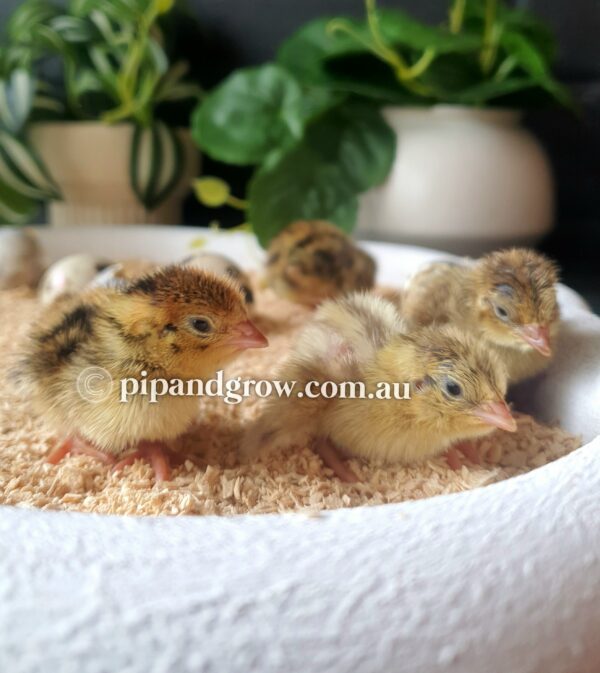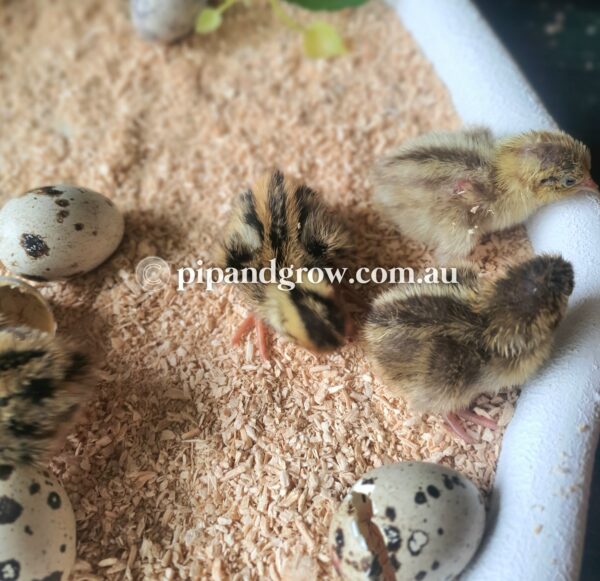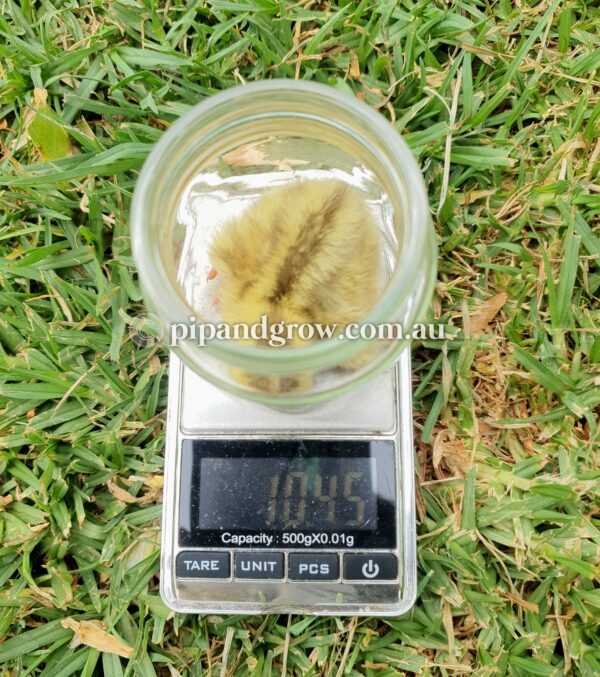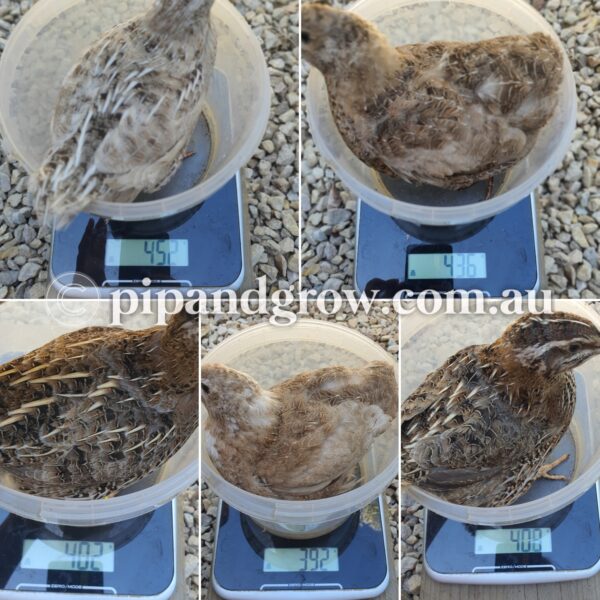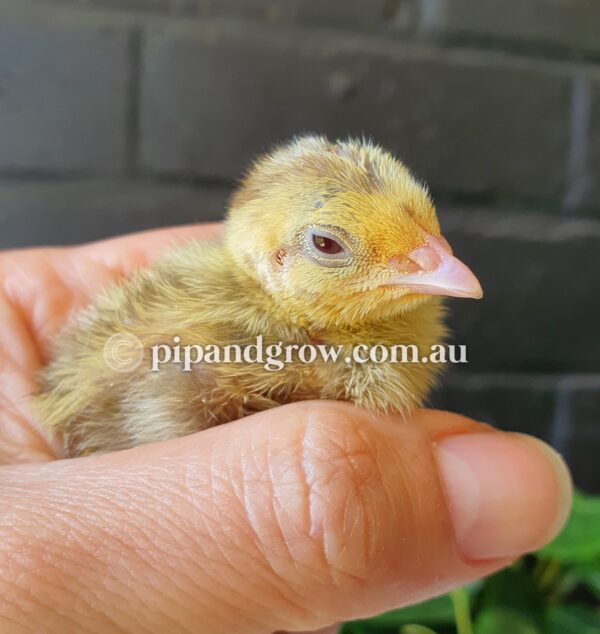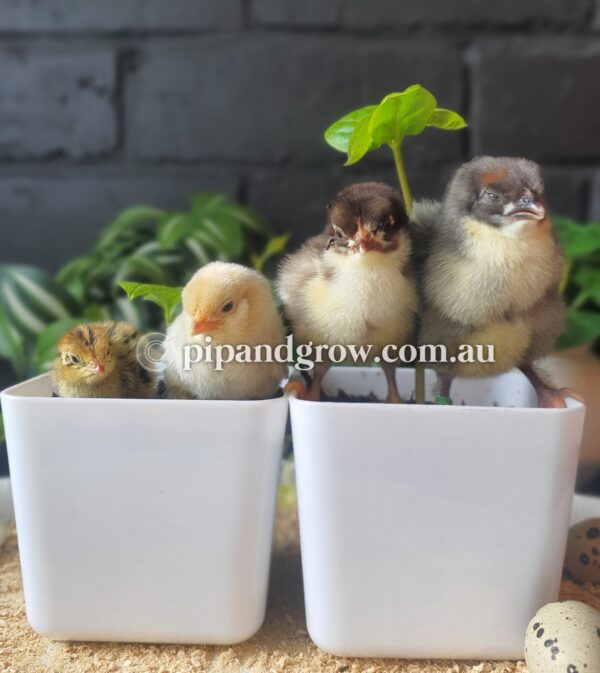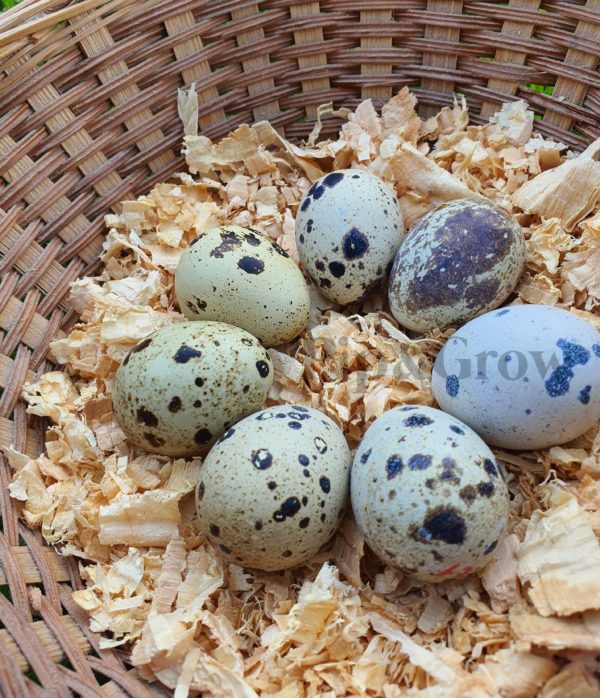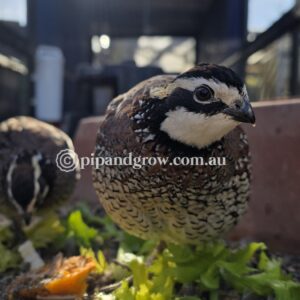Description
QUAIL EGGS POLICY EXCLUSION
Quail eggs are not covered under our Damaged on Arrival or Viability Matters policy. We test all eggs prior to sale and pack every order with utmost care to give you the best possible outcome. However, due to the delicate nature of quail eggs — their thin shells and small size — they are more prone to internal damage during handling and transit. This can lead to lower or poor viability, even with proper testing and careful packaging. For this reason, hatch rates can be anywhere between 0 to 80% when quail eggs are posted. We would like to leave a clear note here so customers are aware of the risk and can make an informed decision accordingly.
Western Australia shipping restriction
Unfortunately, we are unable to ship quail eggs to WA, where quails are listed as a Declared Pest by the Department of Primary Industries and Regional Development. If detected during random searches or x-rays, they will not be released. To import quail eggs into WA, buyers must obtain an import permit and cover quarantine inspection fees, which can be a complex and costly process. (More info here)
Japanese Quail
Also known as “coturnix quail” Large jumbo – Goliath size Mixed colour pen with red eye “Cinnamon” mutation
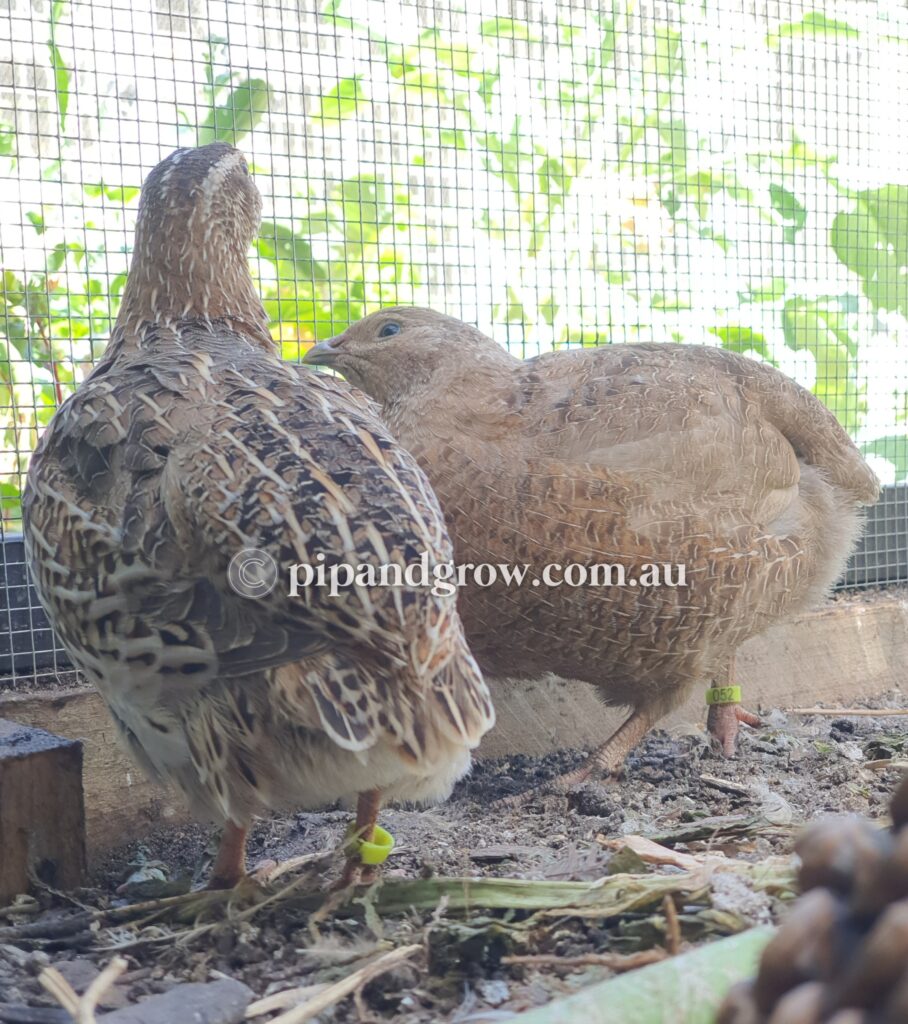
The Japanese Quail is a small, hardy bird native to East Asia, commonly raised for its eggs, meat, and as ornamental pets. Known for their rapid maturity and prolific laying capabilities, they are a popular choice for both hobbyists and homesteaders. These quails are very easy to care for and hardy, making them an excellent choice for beginners or those with limited space who still wish to enjoy a source of fresh eggs. While we raise our quails on the ground, many people successfully keep them in small aviaries or large cages. Typical life span is around 2-3 years but may live longer in ideal conditions.
***It is not recommended to house quails with chickens due to their differing nature, dietary requirements, behavior, and potential disease risks. Quails require a higher-protein diet and are generally more sensitive, making separate housing the safest option for both.***
Japanese quails are categorized based on their weight at maturity, typically measured around the 6–8 week mark. Males are generally smaller than females.
– Standard: Mature weight under 250g.
– Jumbo: Weight over 250g and under 400g.
– Goliath: 400g and above.
Note: “Goliath” is an unofficial size classification used among breeders to describe exceptionally large quails that have been selectively bred.
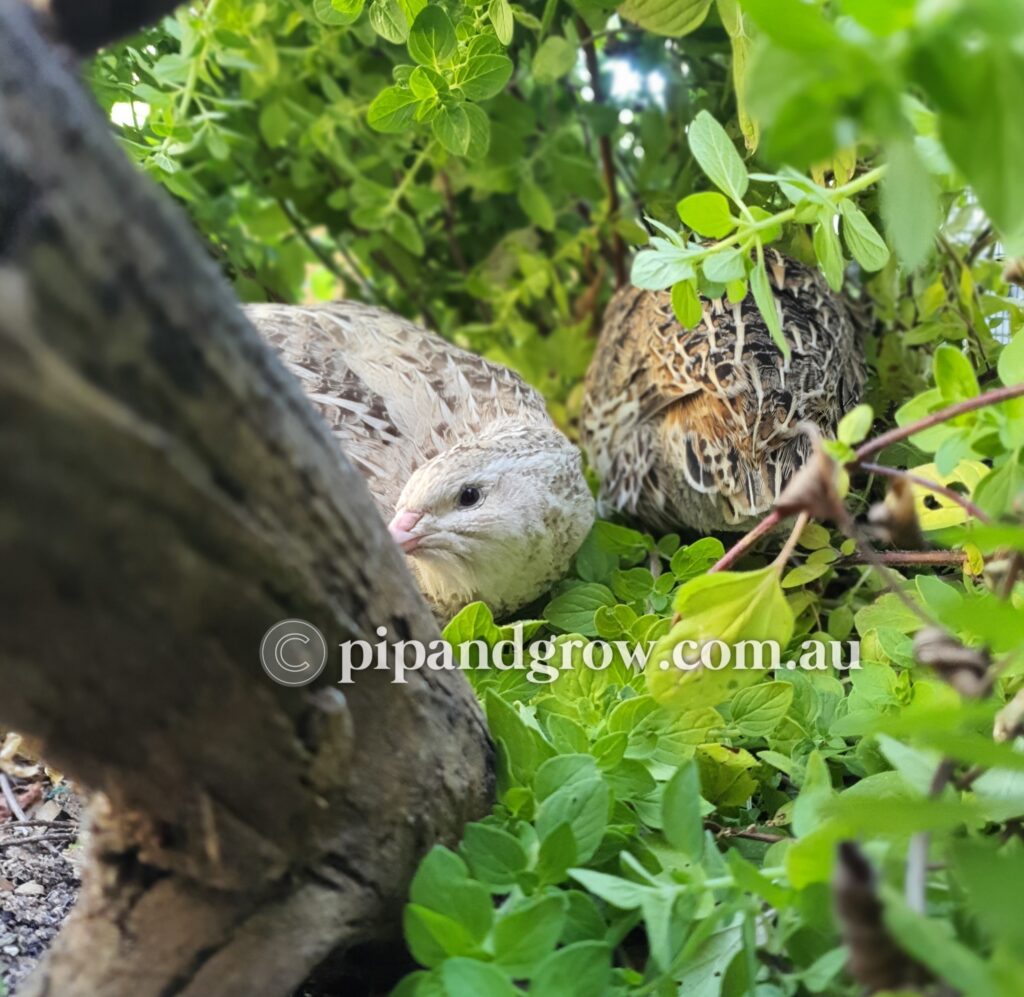

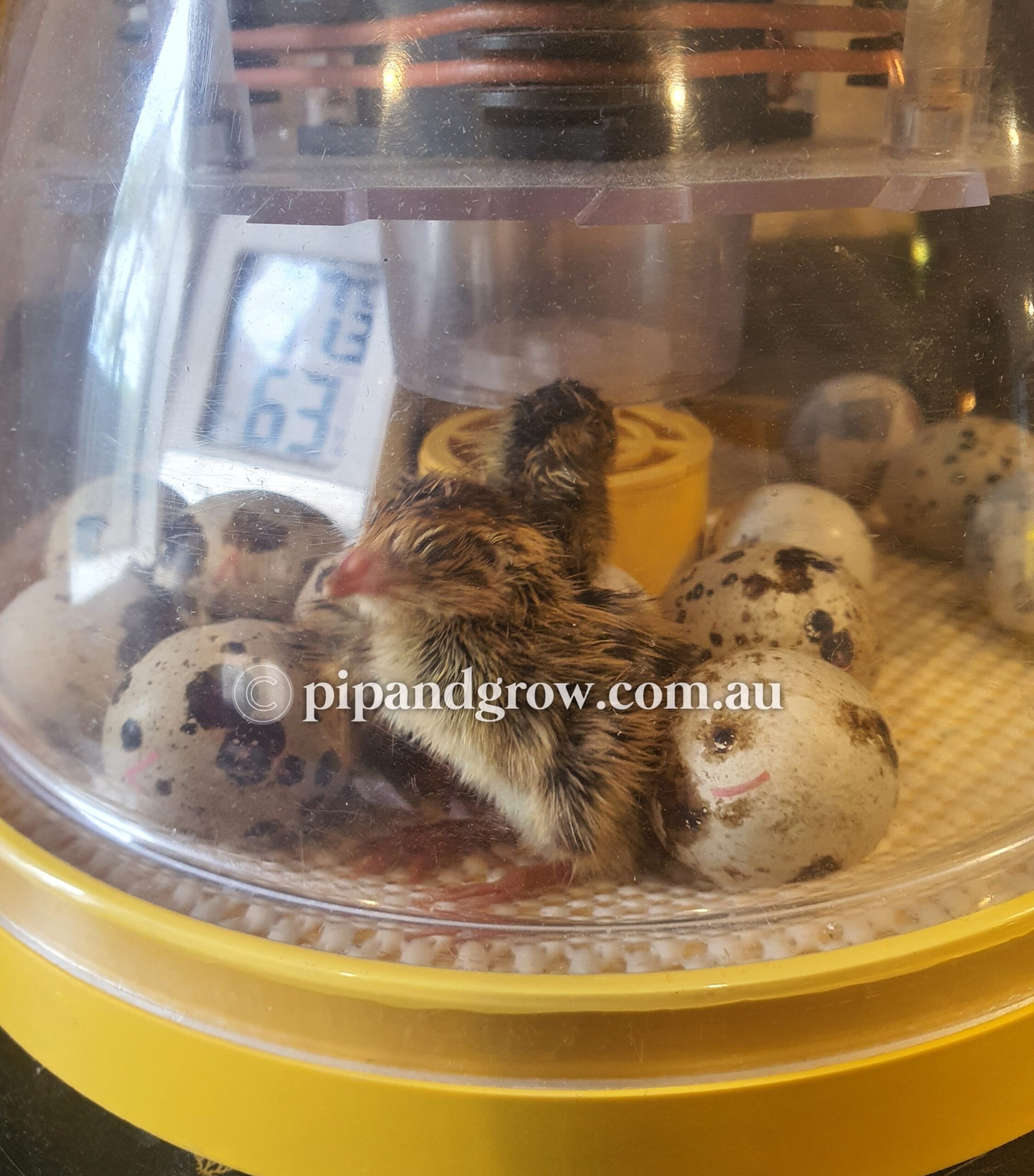
Incubation
Raising Japanese Quail – Brooder set up, Habitat & Sexing Tips
